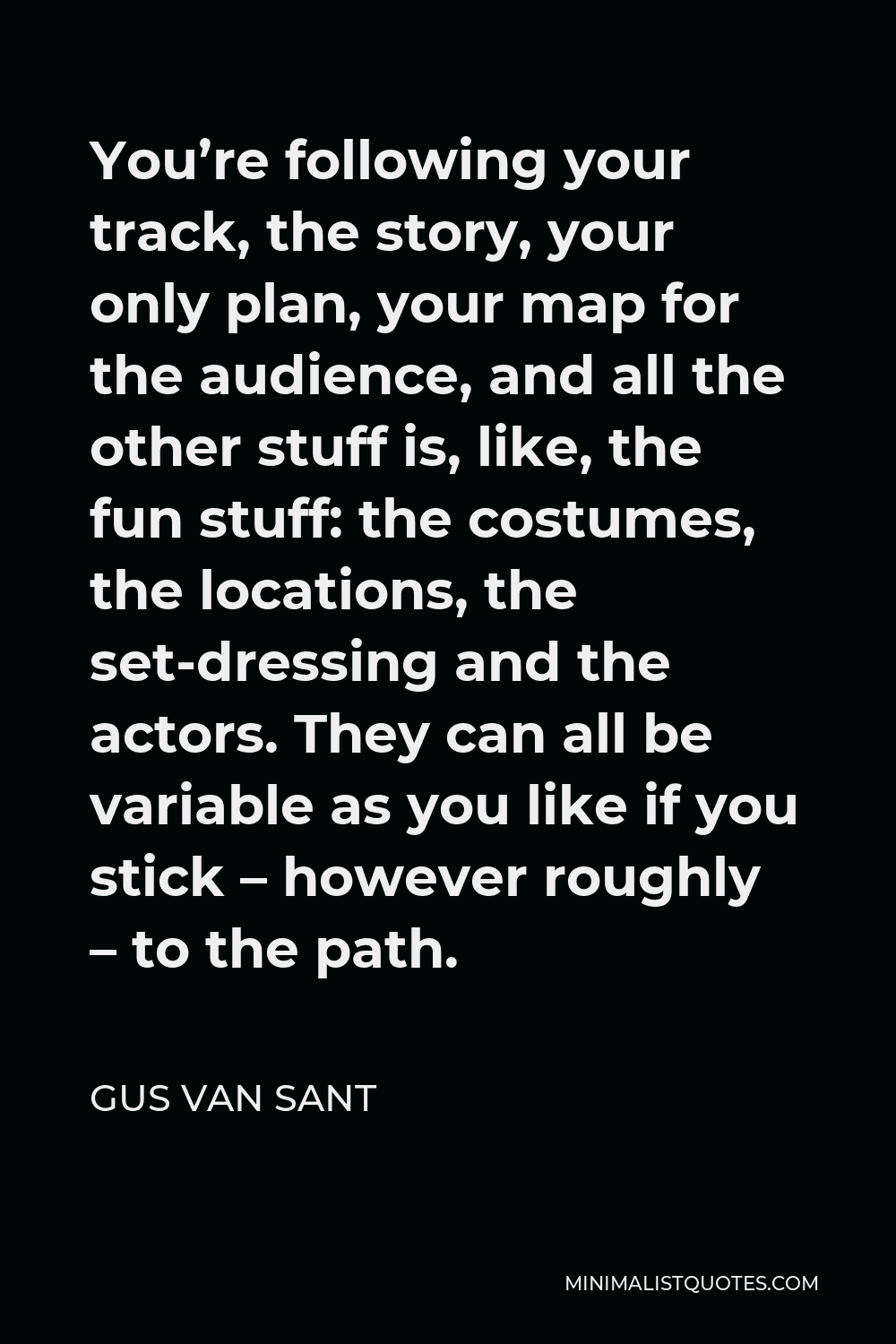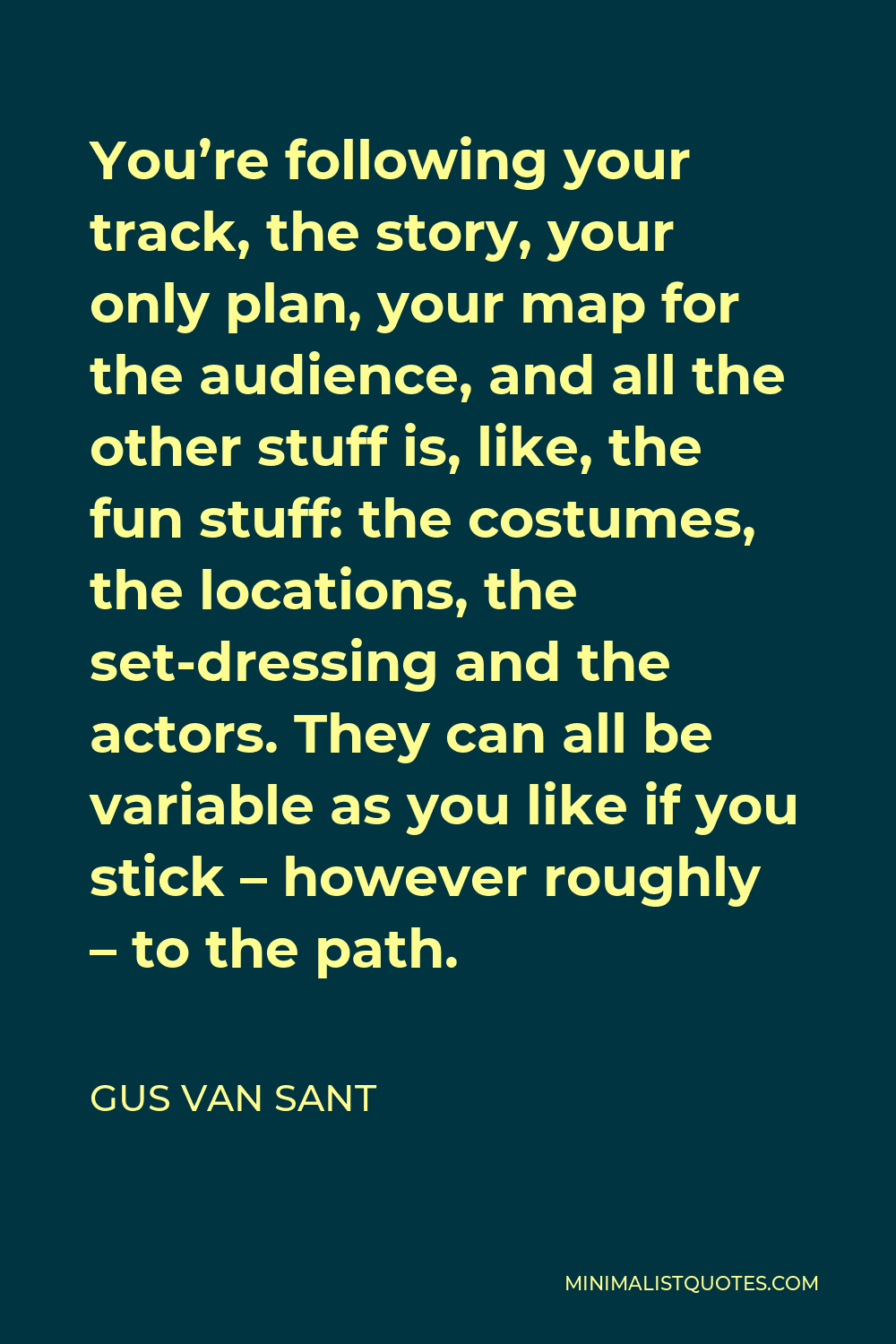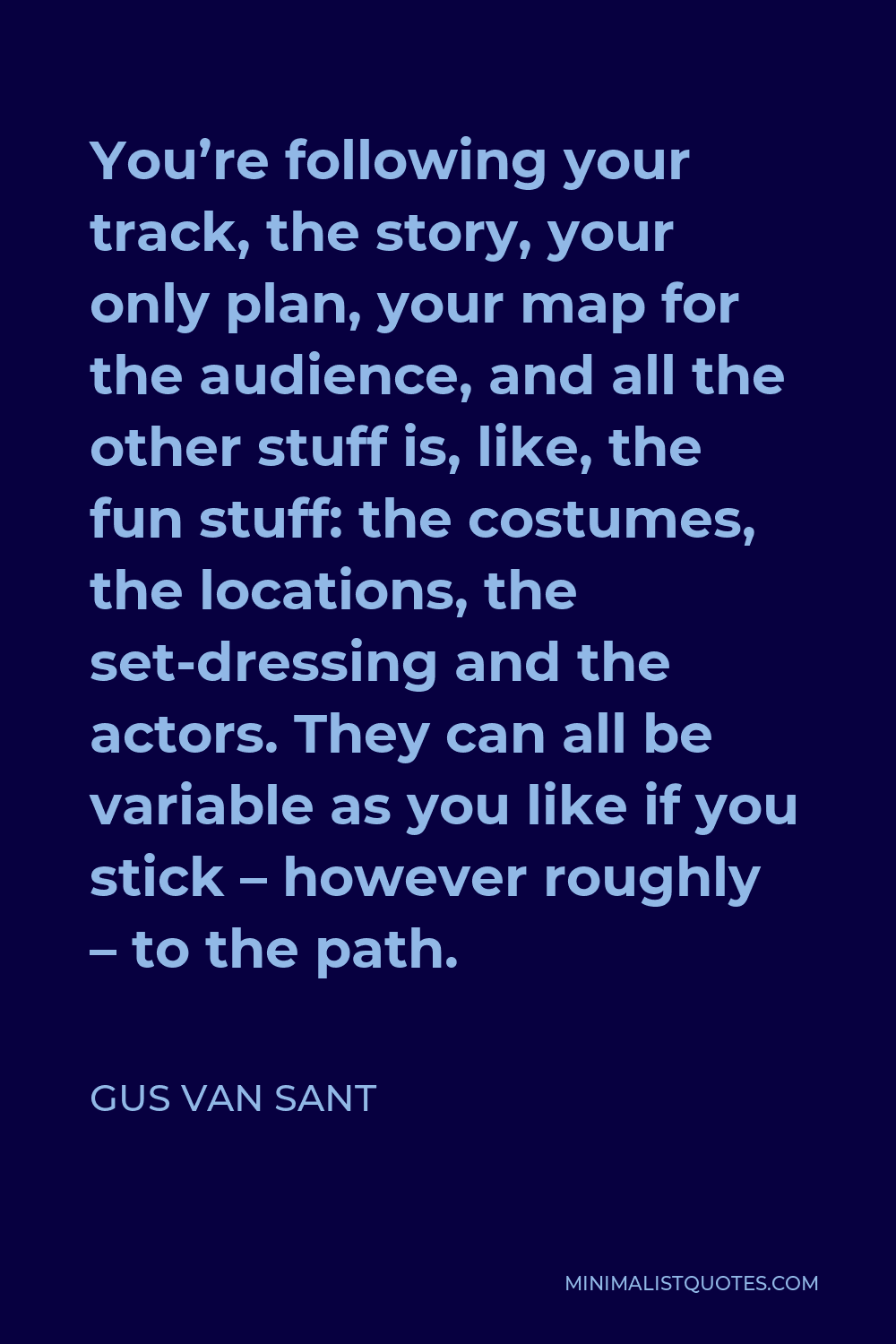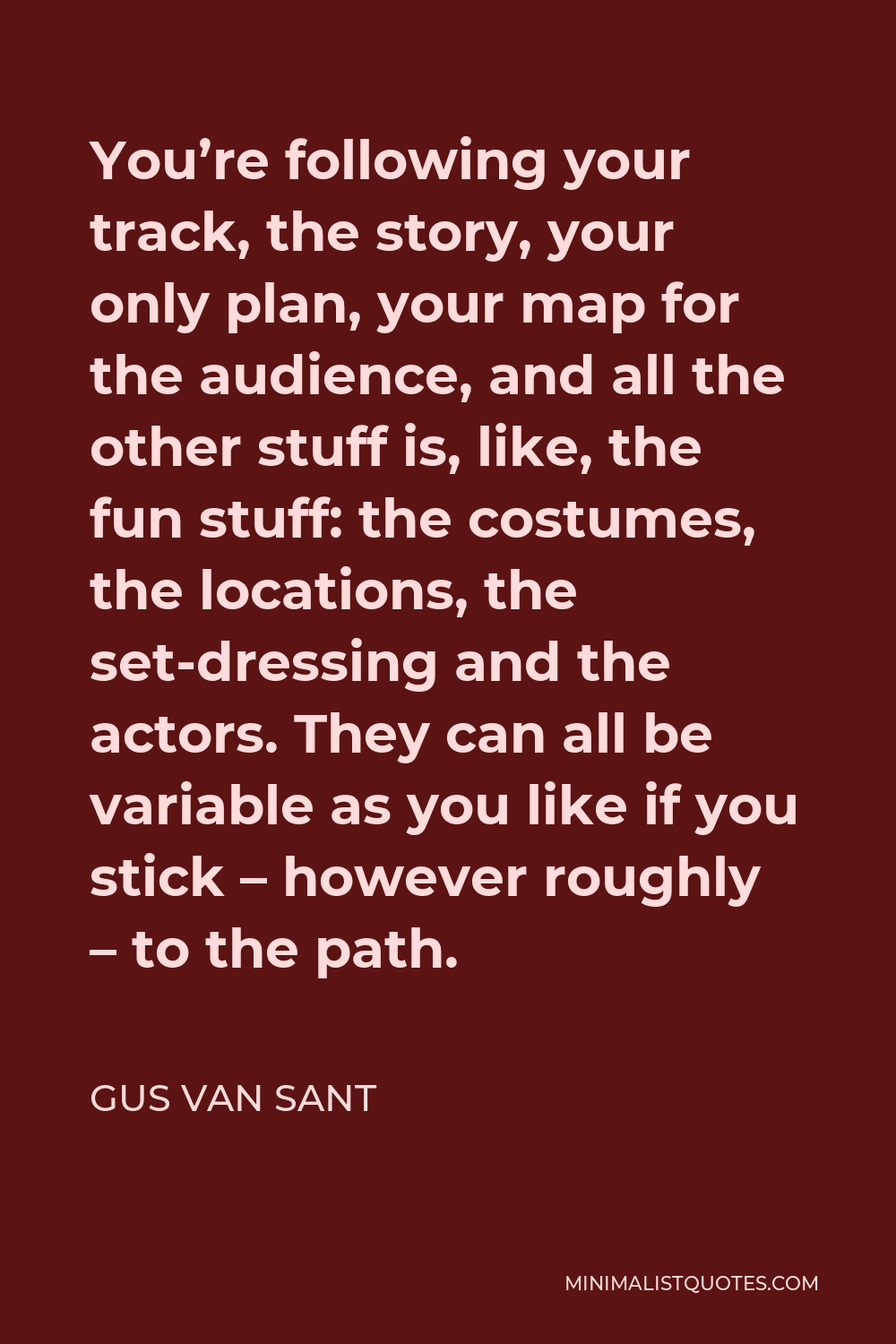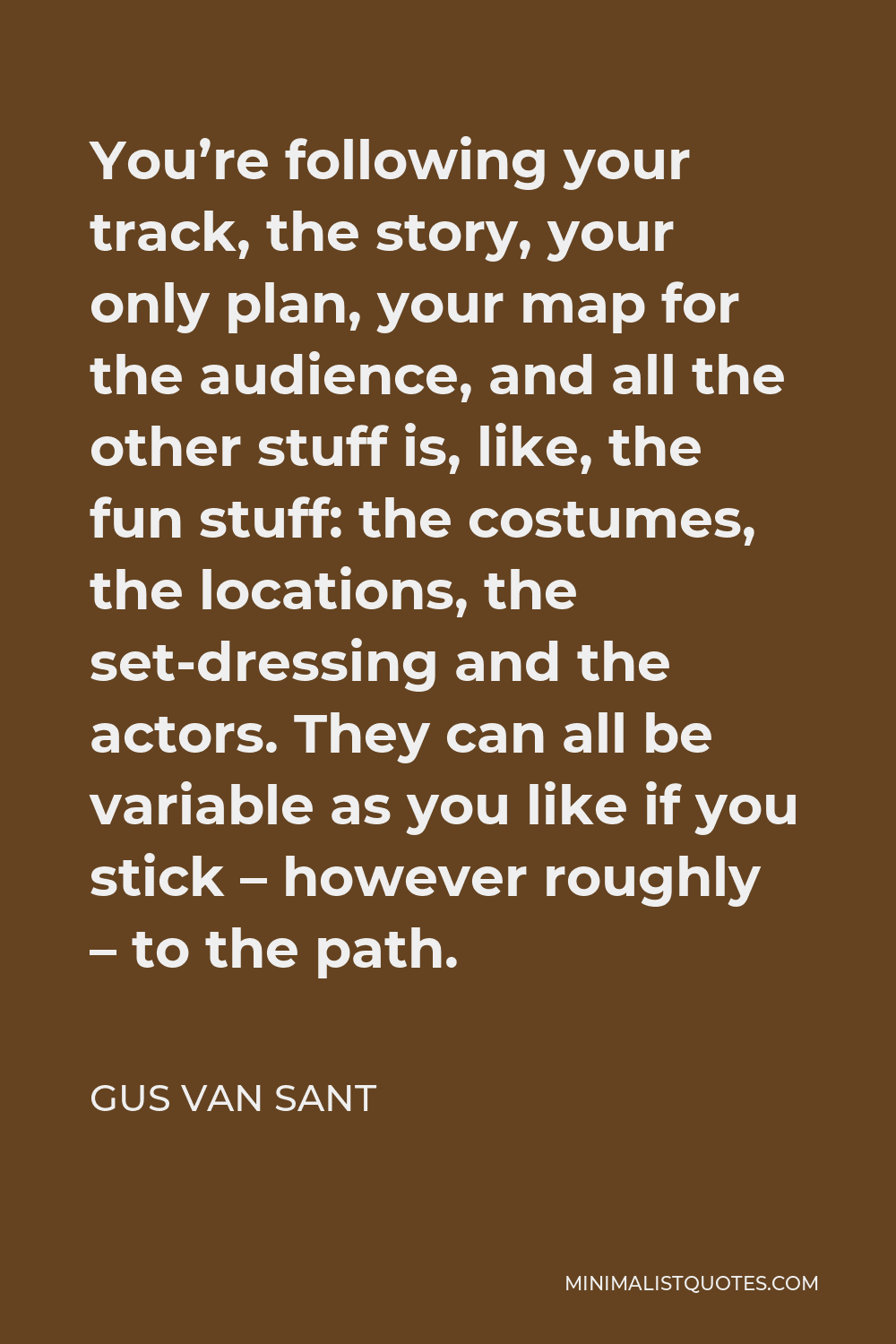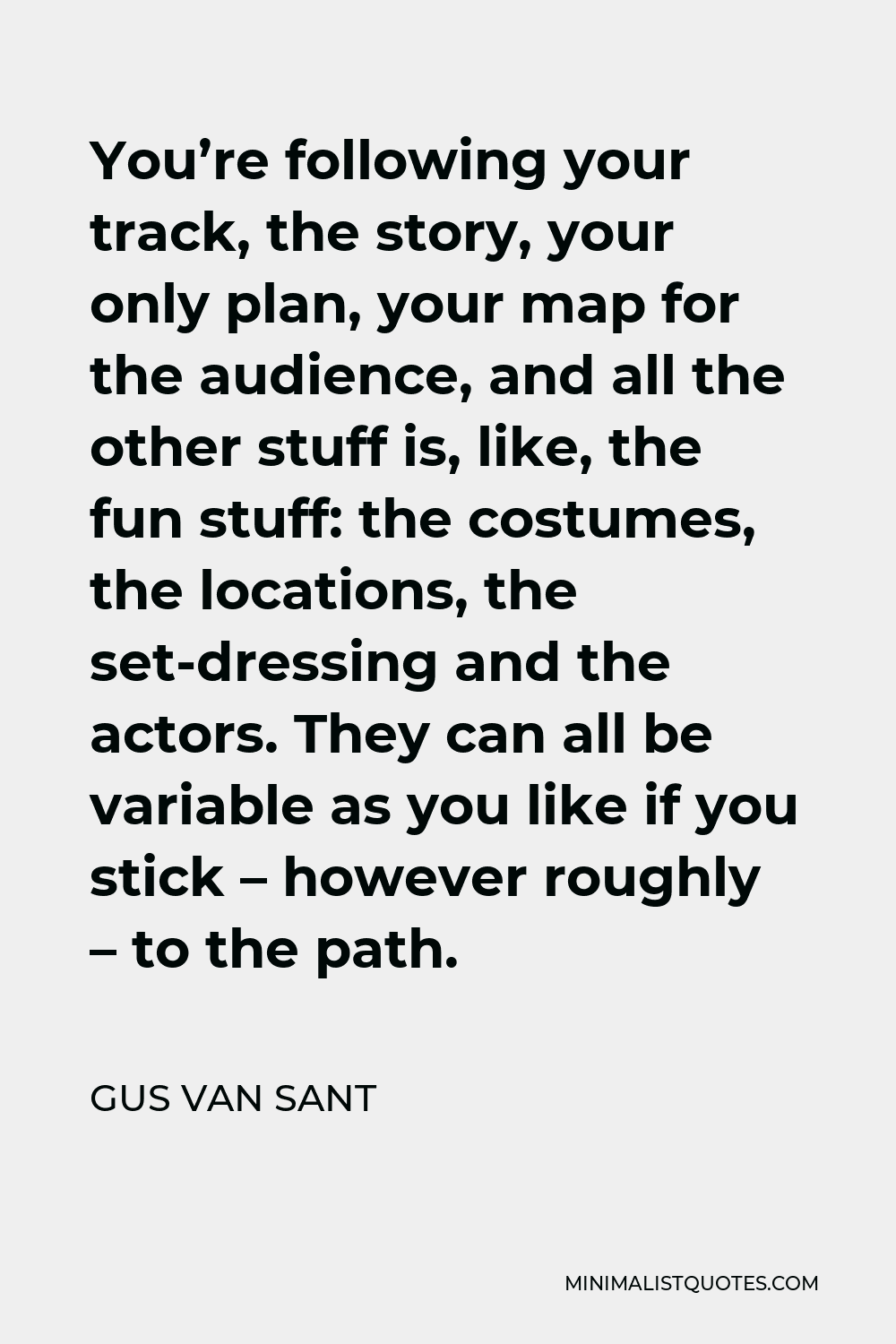A person’s sexuality is so much more than one word “gay.” No one refers to anyone as just “hetero” because that doesn’t say anything. Sexual identity is broader than a label.
GUS VAN SANTYou’re following your track, the story, your only plan, your map for the audience, and all the other stuff is, like, the fun stuff: the costumes, the locations, the set-dressing and the actors. They can all be variable as you like if you stick – however roughly – to the path.
More Gus Van Sant Quotes
-





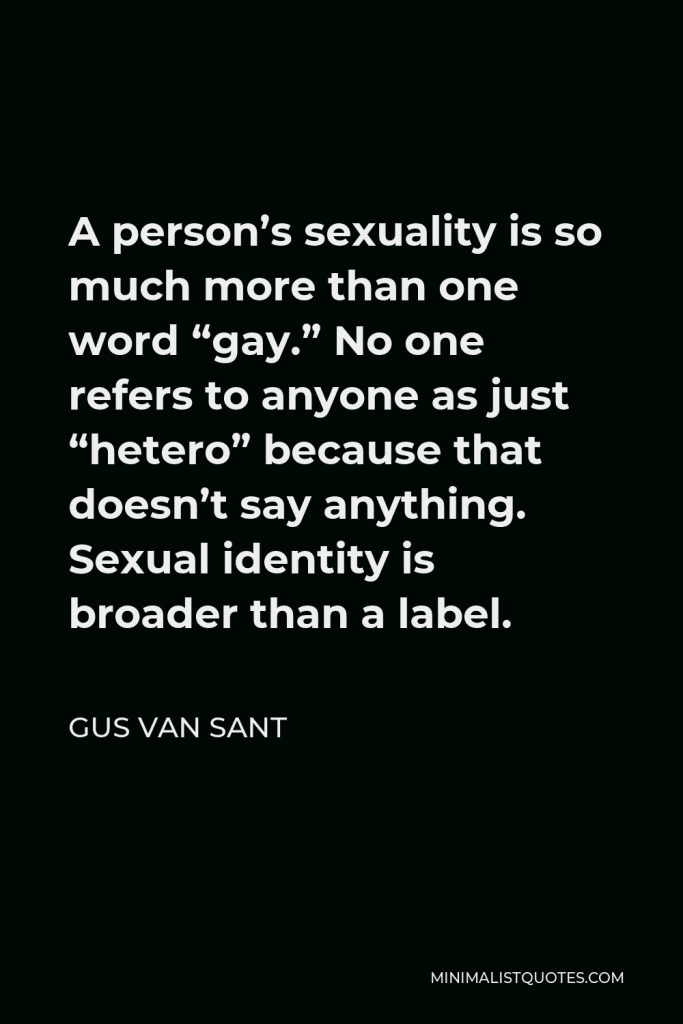

-





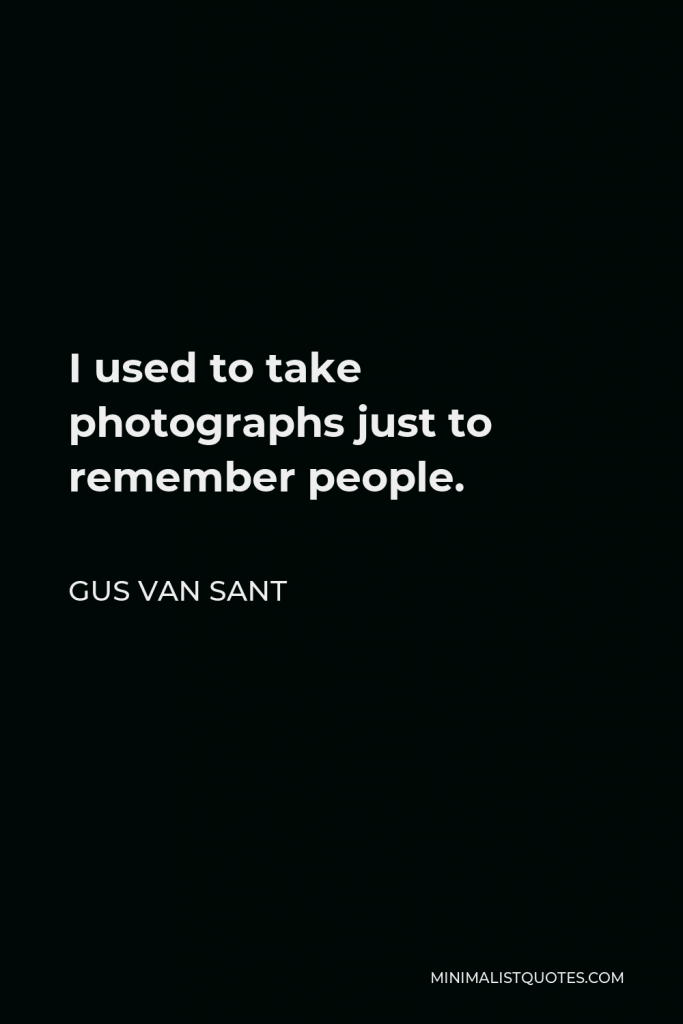

I used to take photographs just to remember people.
GUS VAN SANT -





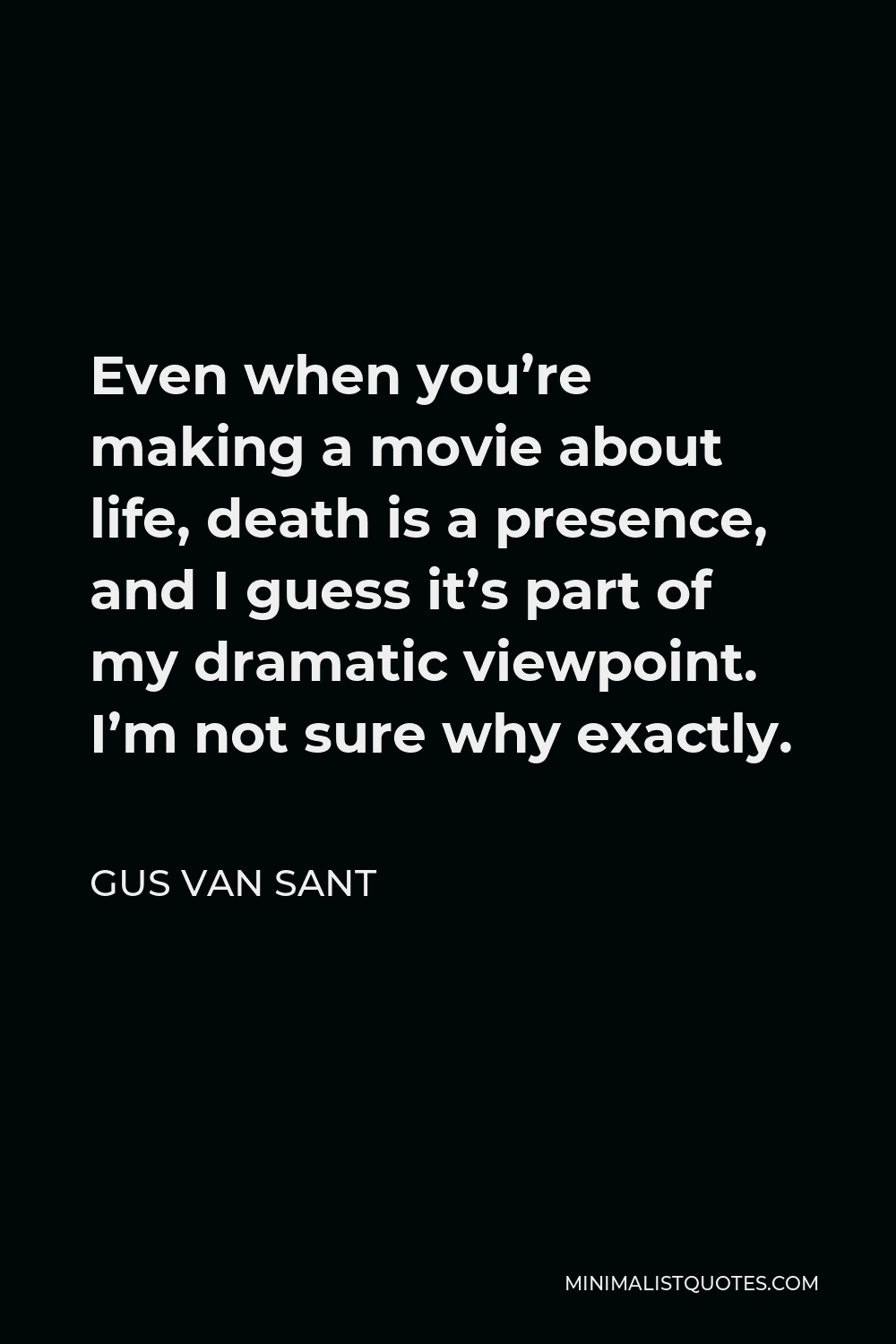
Even when you’re making a movie about life, death is a presence, and I guess it’s part of my dramatic viewpoint. I’m not sure why exactly.
GUS VAN SANT -





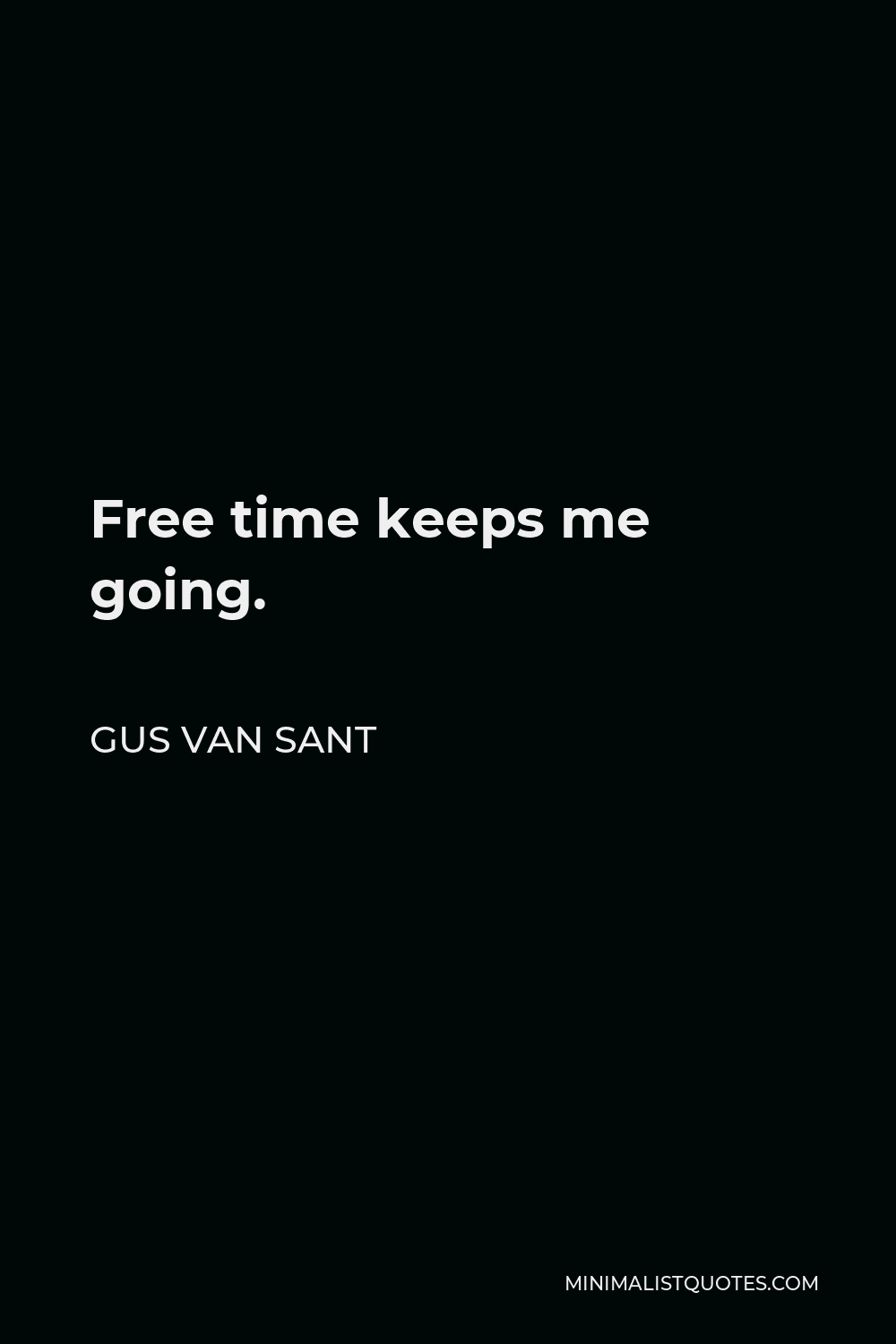
Free time keeps me going.
GUS VAN SANT -





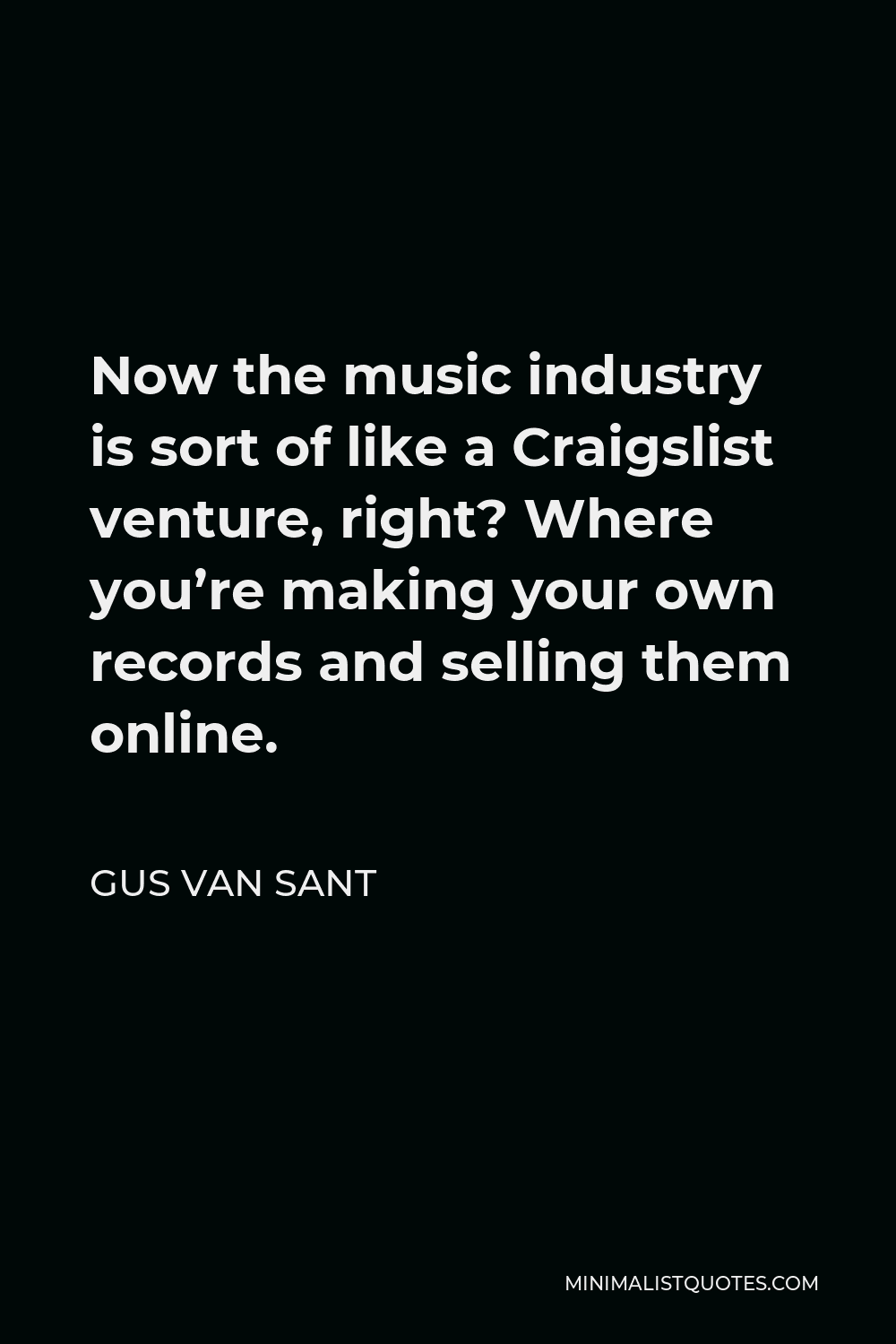
Now the music industry is sort of like a Craigslist venture, right? Where you’re making your own records and selling them online.
GUS VAN SANT -





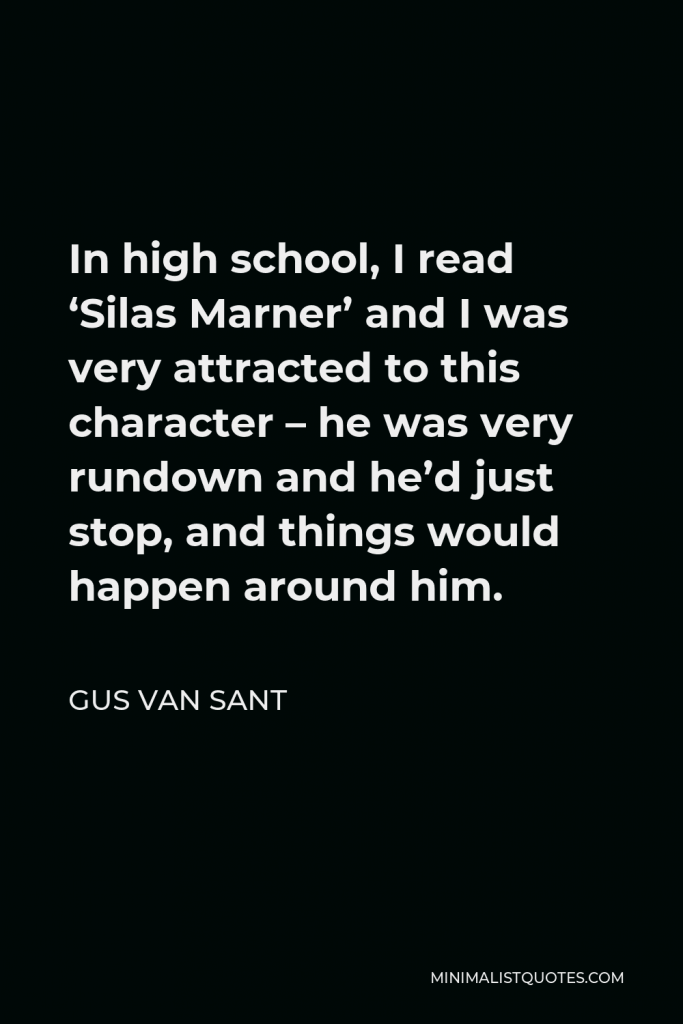

In high school, I read ‘Silas Marner’ and I was very attracted to this character – he was very rundown and he’d just stop, and things would happen around him.
GUS VAN SANT -





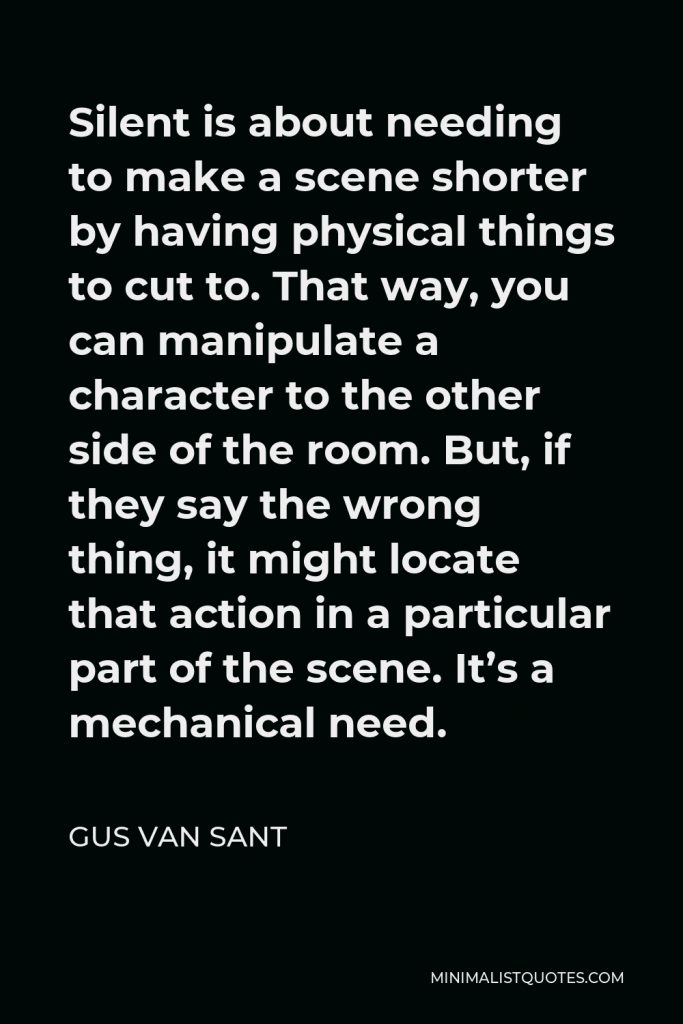

Silent is about needing to make a scene shorter by having physical things to cut to. That way, you can manipulate a character to the other side of the room. But, if they say the wrong thing, it might locate that action in a particular part of the scene. It’s a mechanical need.
GUS VAN SANT -





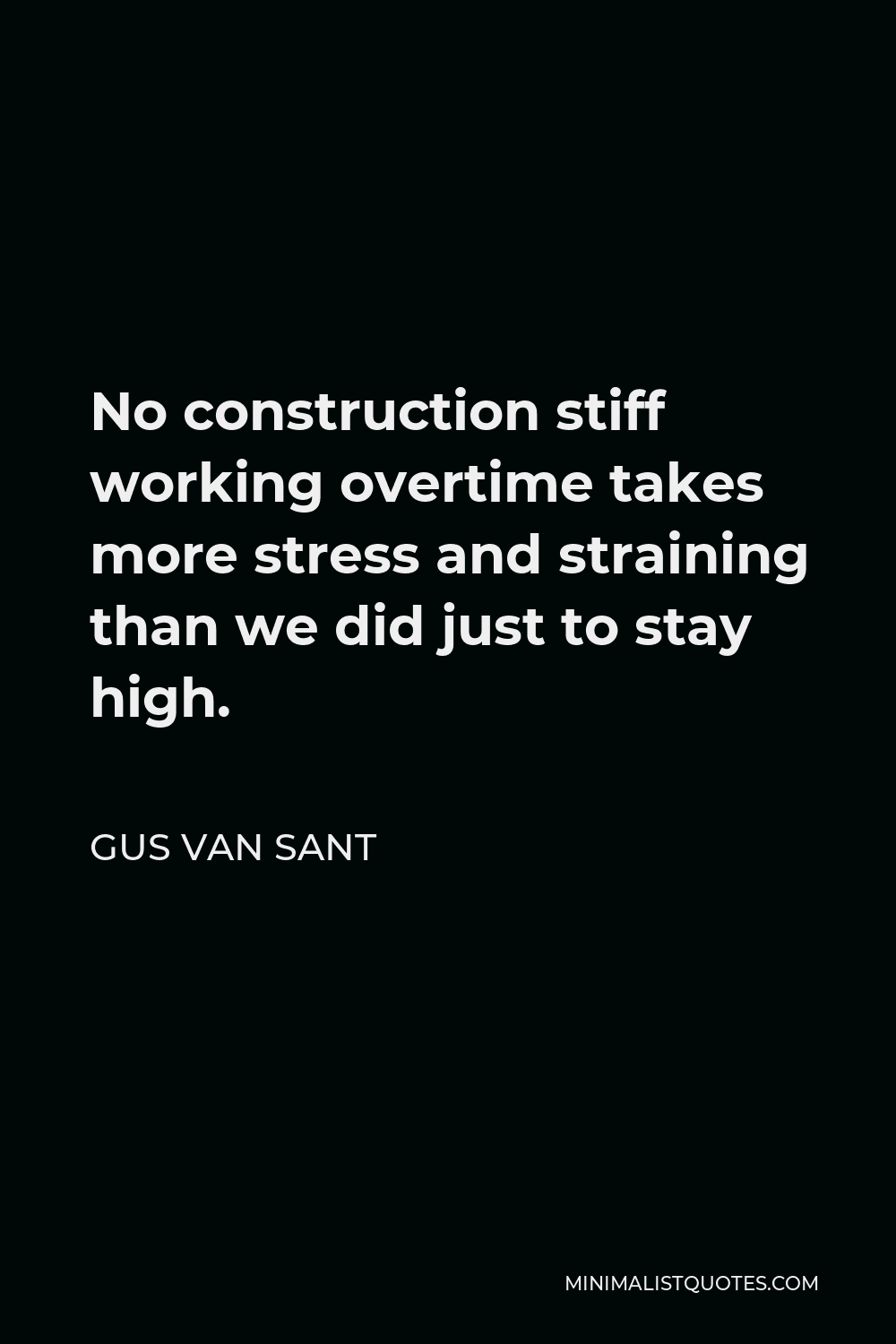
No construction stiff working overtime takes more stress and straining than we did just to stay high.
GUS VAN SANT -





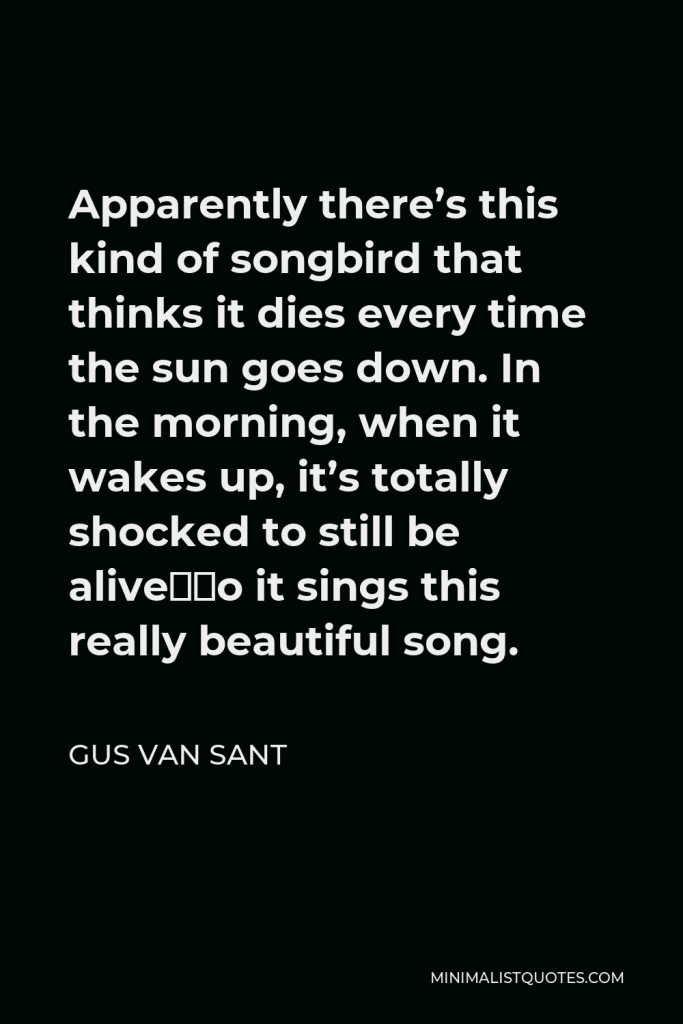

Apparently there’s this kind of songbird that thinks it dies every time the sun goes down. In the morning, when it wakes up, it’s totally shocked to still be alive—so it sings this really beautiful song.
GUS VAN SANT -





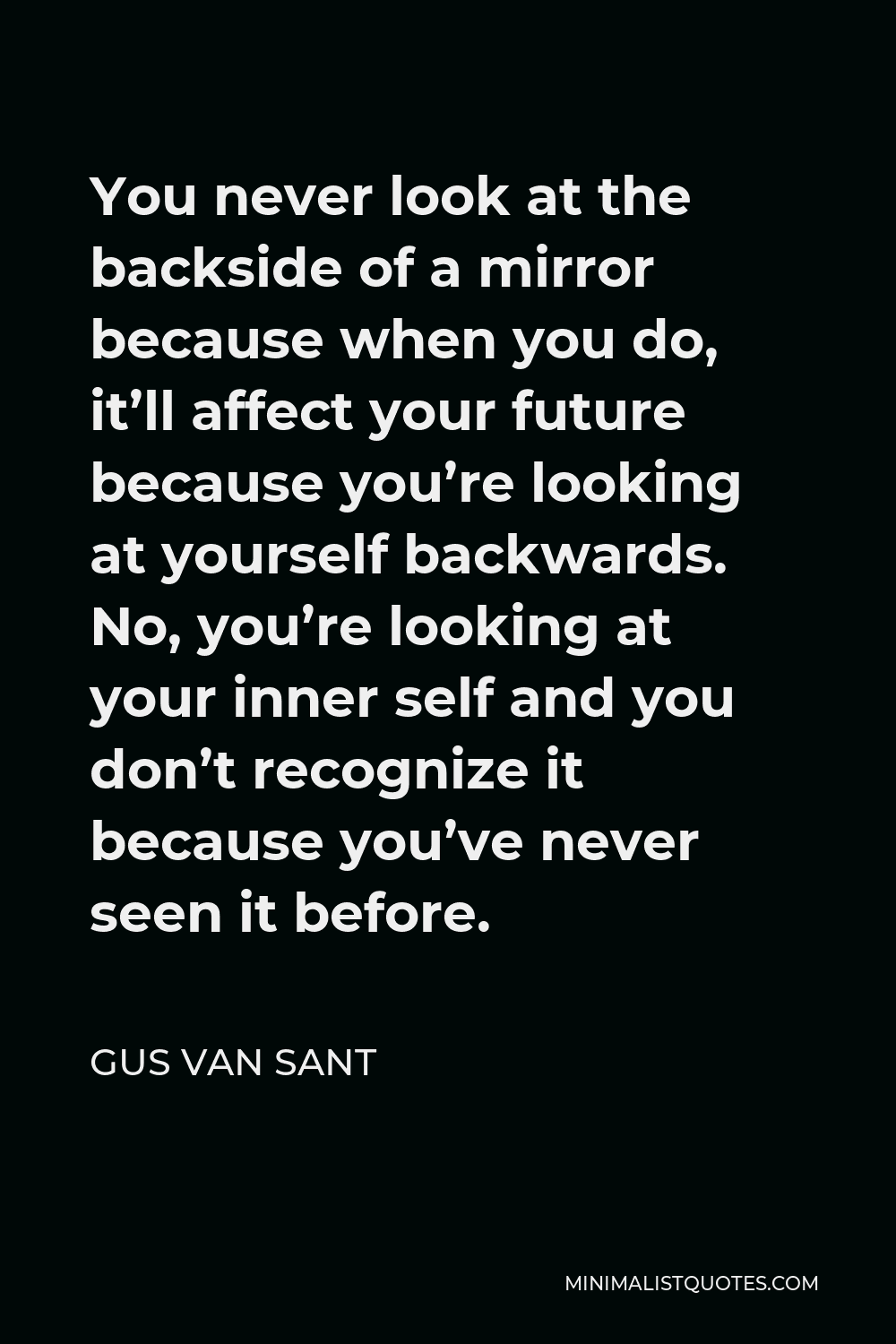
You never look at the backside of a mirror because when you do, it’ll affect your future because you’re looking at yourself backwards. No, you’re looking at your inner self and you don’t recognize it because you’ve never seen it before.
GUS VAN SANT -





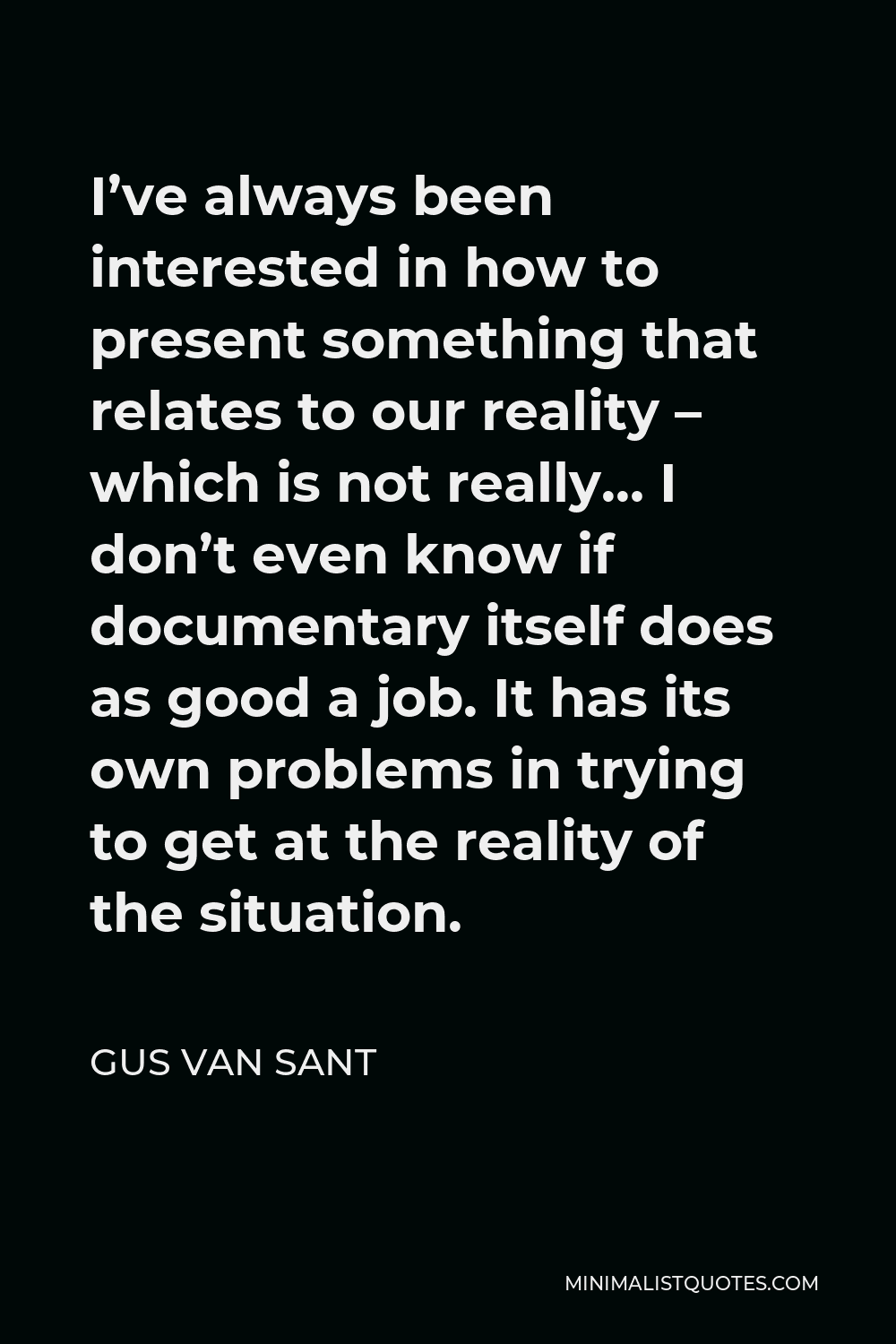
I’ve always been interested in how to present something that relates to our reality – which is not really… I don’t even know if documentary itself does as good a job. It has its own problems in trying to get at the reality of the situation.
GUS VAN SANT -





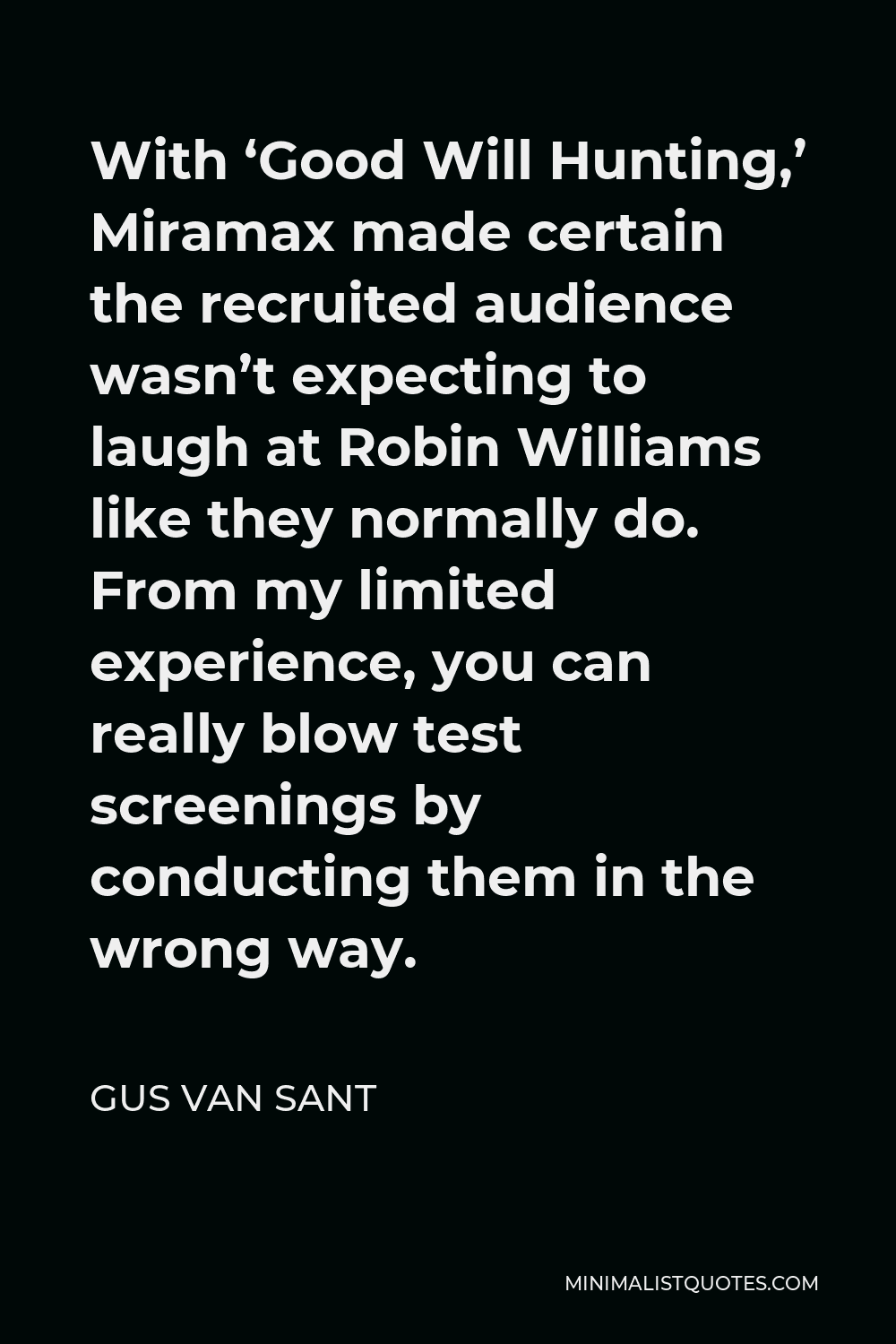
With ‘Good Will Hunting,’ Miramax made certain the recruited audience wasn’t expecting to laugh at Robin Williams like they normally do. From my limited experience, you can really blow test screenings by conducting them in the wrong way.
GUS VAN SANT -






Everything’s changing so fast that it’s sometimes hard to keep up.
GUS VAN SANT -





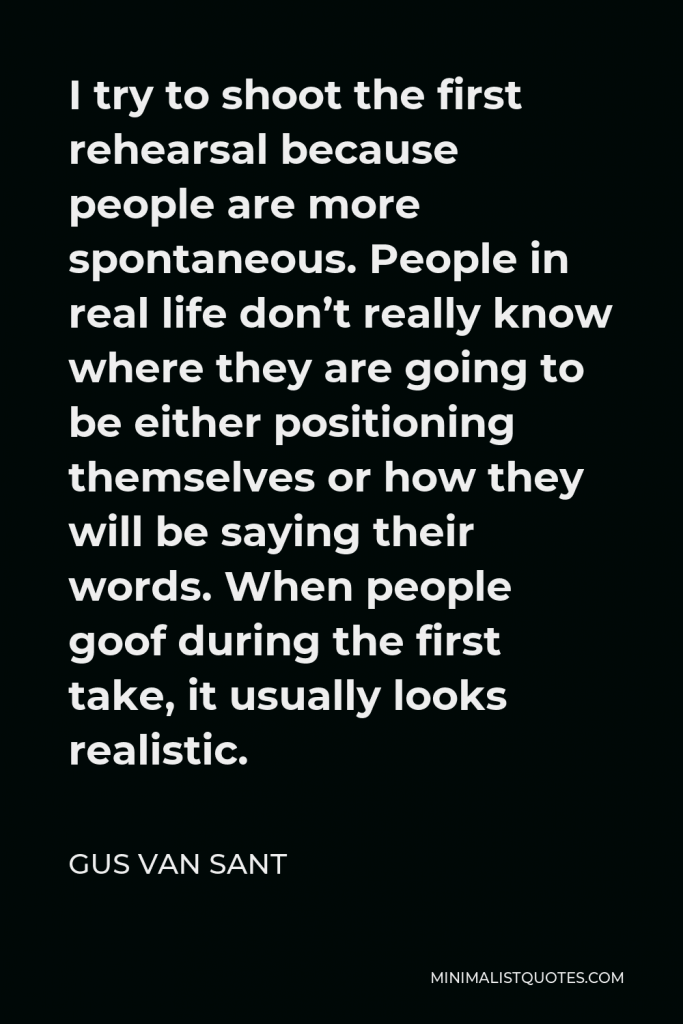

I try to shoot the first rehearsal because people are more spontaneous. People in real life don’t really know where they are going to be either positioning themselves or how they will be saying their words. When people goof during the first take, it usually looks realistic.
GUS VAN SANT -





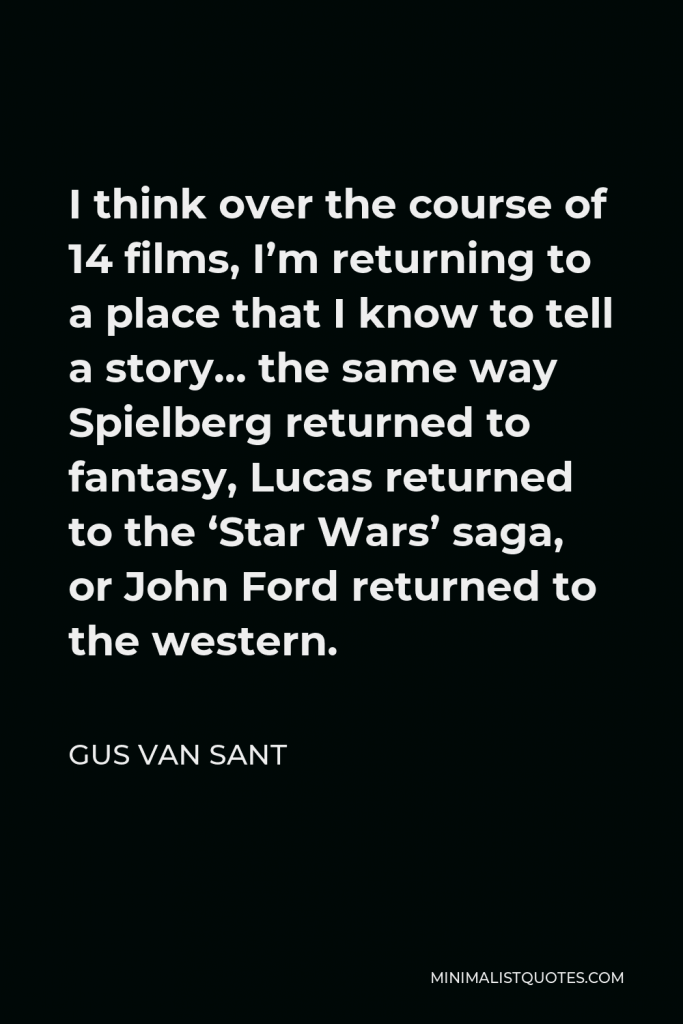

I think over the course of 14 films, I’m returning to a place that I know to tell a story… the same way Spielberg returned to fantasy, Lucas returned to the ‘Star Wars’ saga, or John Ford returned to the western.
GUS VAN SANT -





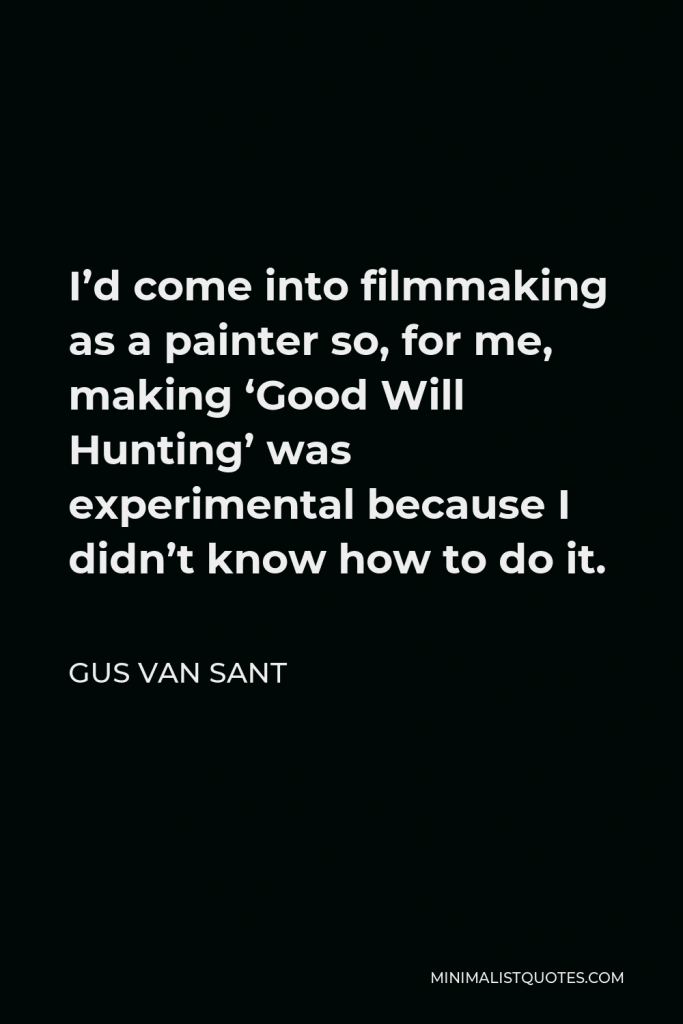

I’d come into filmmaking as a painter so, for me, making ‘Good Will Hunting’ was experimental because I didn’t know how to do it.
GUS VAN SANT
